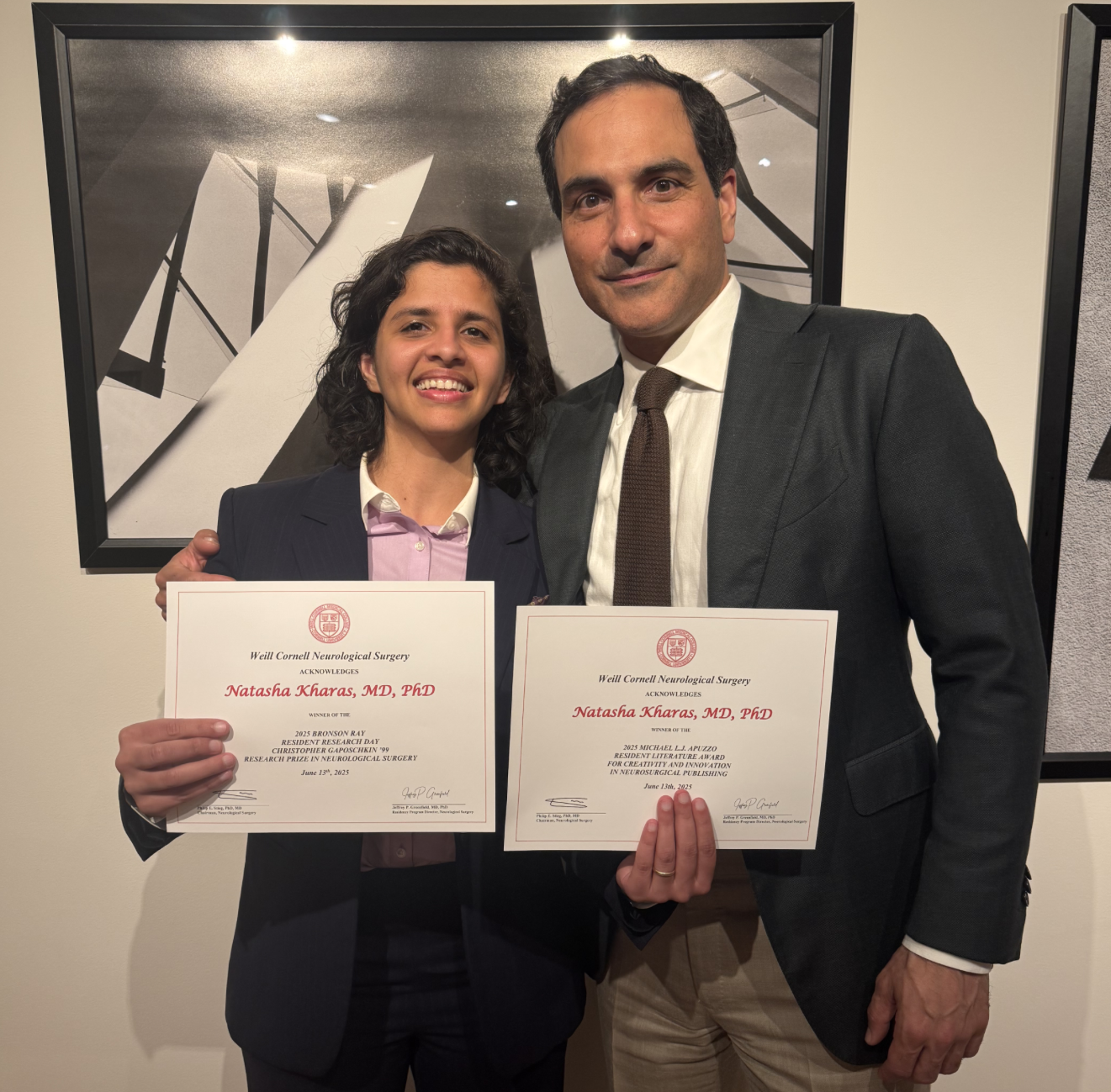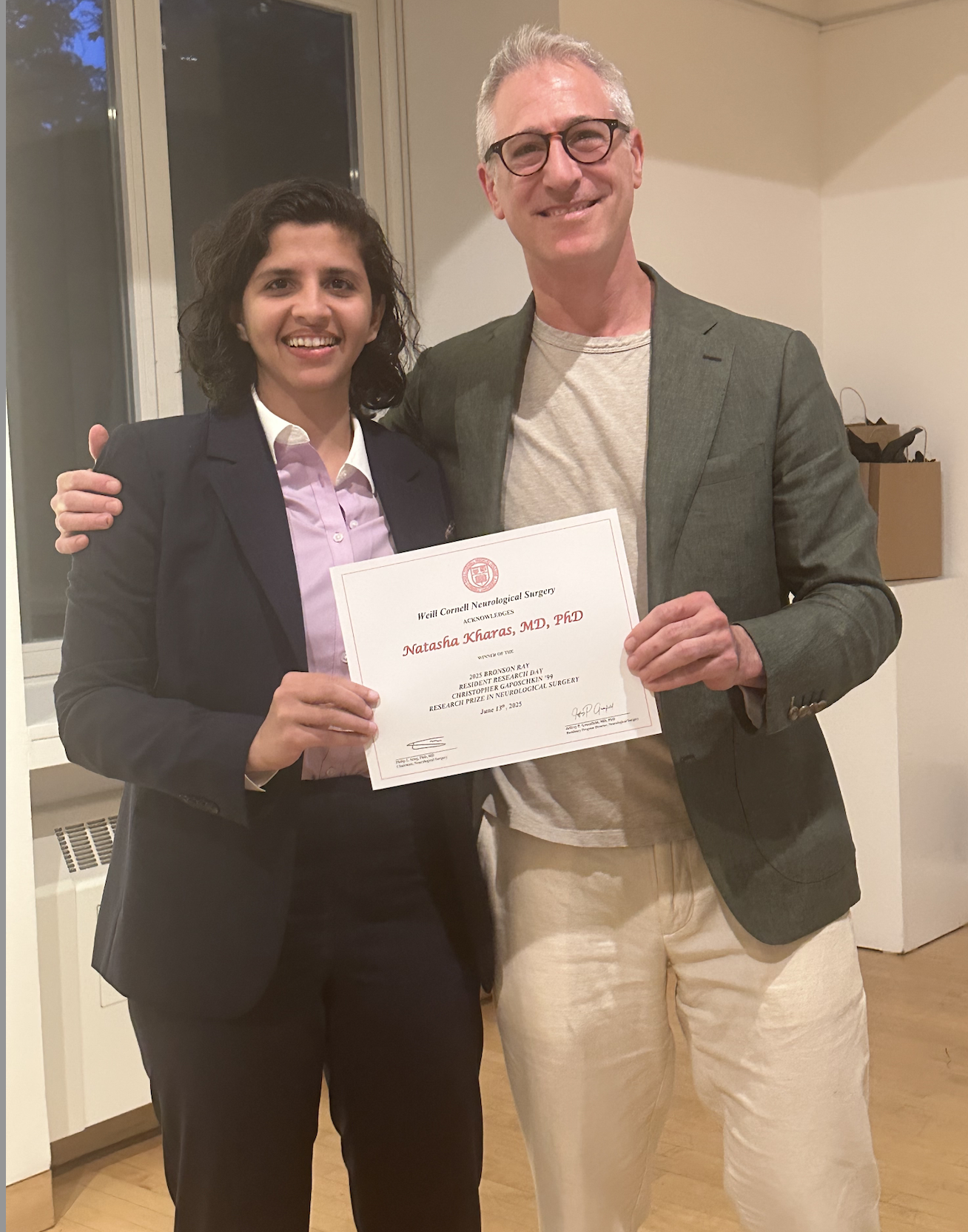
Weill Cornell Medicine neurosurgery resident receives prestigious award for breakthrough spinal cord injury treatment research.
Weill Cornell Medicine proudly announces that Dr. Natasha Kharas, MD, PhD, a PGY-5 neurosurgery resident, has been awarded the Christopher Gaposchkin ’99 Research Prize in Neurological Surgery for the 2025 Bronson Ray Resident Research Day. The annual award recognizes outstanding research conducted by a neurosurgery resident, and Dr. Kharas joins a distinguished group of past recipients whose work continues to shape the future of neuroscience and patient care.
Dr. Kharas's award-winning project, titled "Closed-loop brain-spine stimulation for motor recovery after spinal cord injury," explores how neural rhythms, specifically alpha brain waves, can be used to predict and enhance motor responses to brain and spinal cord stimulation. Her research demonstrates that alpha wave activity in the brain before stimulation significantly correlates with improved motor responses, providing a potential biomarker for optimizing stimulation protocols in real time.

Dr. Natasha Kharas receiving the award from neurosurgery residency program director Dr. Jeffrey Greenfield.
"By identifying and harnessing endogenous brain rhythms, we can personalize stimulation," said Dr. Kharas. "This is a critical step toward developing effective closed-loop neurostimulation systems to restore movement after spinal cord injury, rather than using a one-size-fits-all approach."
Endogenous brain rhythms will be recorded in an FDA- and IRB-approved pilot trial involving three patients with incomplete spinal cord injuries (patients who retain some sensation or movement below their injury) in collaboration with Jason Carmel at Columbia University Medical Center and the James J. Peters Department of Veterans Affairs Medical Center.
A native New Yorker, Dr. Kharas earned her undergraduate degree in neural science (with highest honors) from New York University before completing her MD and PhD at McGovern Medical School at the University of Texas Health Science Center at Houston.
Dr. Kharas's research is conducted under the mentorship of Drs. Michael Virk and Jason Carmel and is supported in part by the National Institutes of Health. Her commitment to bridging the gap between neuroscience research and clinical care exemplifies the spirit of the Gaposchkin Prize. Dr. Kharas was also awarded the 2025 Apuzzo Resident Literature Award for Creativity and Innovation in Neurosurgical Publishing for her article published in Science that introduces a novel electrical stimulation paradigm to replicate endogenous brain rhythms.
Congratulations to Dr. Kharas on these well-deserved honors!